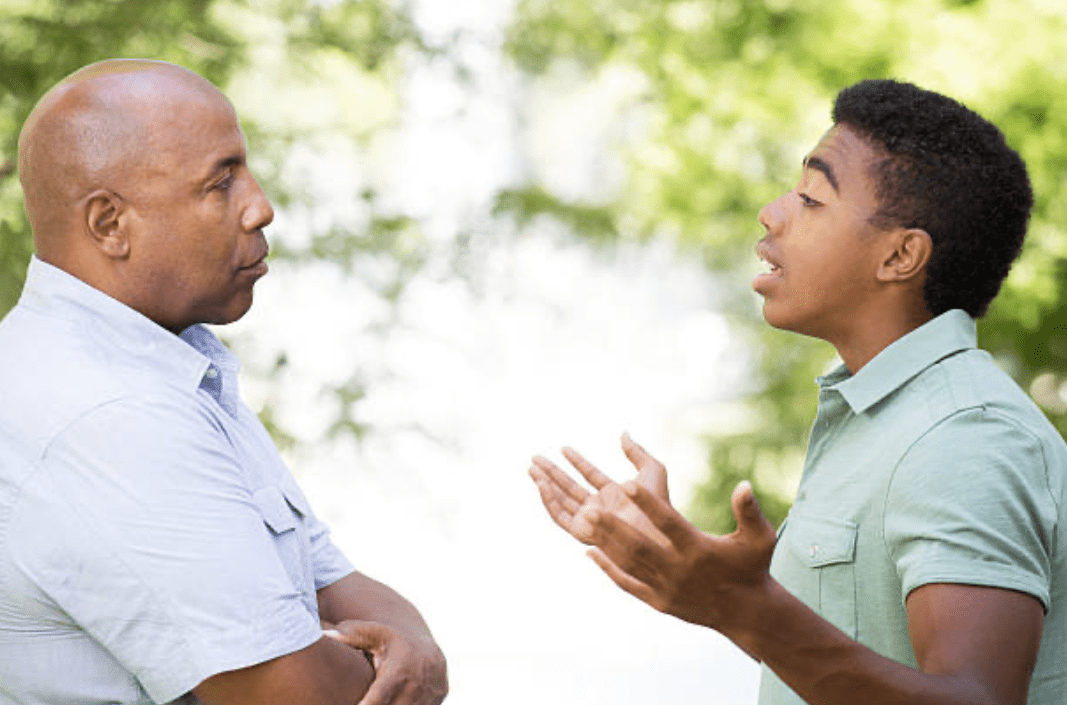Top 10 Causes of Low Sex Drive in Women
This article is based on scientific evidence and clinical experience, written by a licensed professional and fact-checked by experts.
Posted: December 20, 2023
Estimated reading time: 9 minutes

Low sex drive amongst married women is the #1 reason couples come to my office for sex therapy. But, there’s good news: Low Libido is VERY treatable! So if you’ve ever wondered “Why am I not sexually interested in my husband?” – Read On!
Why did I lose my sex drive?
As a sex therapist, I spend a lot of time with couples that are having difficulty in the sexual part of their relationship. Most of the couples I see are coming to me, at least in part, because the wife is not interested in connecting sexually as frequently as her husband (though 1 out of 5 times it’s the opposite).
[Learn more: When the Wife Wants More Sex ]
When I start assessing the situation I usually find a combination of the following 10 causes for low sexual desire in women. They are all generally related to violations of the pleasure principle. Fortunately, they can all be treated with a high degree of success.
Pleasure Principle
All barriers to sexual desire for married women are usually related to the universal Pleasure Principle. The pleasure principle is simply this: We desire to engage that which we enjoy. We do not desire to engage in what we do not enjoy.
It’s because of the pleasure principle that I never have a deep burning desire to be poked in the eye. I don’t enjoy it, so I don’t crave it. Each of the barriers to a women’s sexual desire makes sex not enjoyable for her. If it’s not enjoyable, why would a woman want it?
Side note: To help you understand these 10 reasons I need to define for you the 2 types of sexual arousal. The first is subjective arousal. This is the awareness or feeling of being horny / sexually aroused. The second is physical arousal this refers to the physiological changes that happen in the body as it becomes sexually aroused (dilation of the pupils, increased heart rate, blood filling the genitals, increased body temperature, perspiration, increased genital sensitivity). It is possible to have one kind of arousal without the other, and each can lead to the other.
1. Fatigue
First, men and women are different. One of the differences is in the way fatigue affects sexual arousal in women. Both men’s and women’s physical arousal is affected by fatigue, but women’s bodies are affected to a much greater degree. If a woman is exhausted physically, her body won’t respond with physical arousal, which means she won’t want or enjoy connecting sexually. If you don’t enjoy connecting sexually – you won’t want to connect sexually.
2. Hormone Cycle
Second, A woman hits her sex hormone peak in her late teens to mid-twenties. As this starts to trail off over time, there’s usually still a hormonal surge that happens 1-3 days a month right around ovulation. The body says “Hey, I’m about to drop an egg, go find your man so you can fertilize it.”
It’s pretty normal for a mature married woman to only experience what we call initiating desire (ie. a spontaneous desire out of the blue) a few days a month during this hormonal surge. For the rest of the month, it is very normal for a woman to connect sexually out of receptive desire. We’ll discuss these further in an article on overcoming the Hormone Cycle for better sex.
3. Anorgasmia
An inability or difficulty achieving orgasm, that’s what Anorgasmia means. Third, if you’re not experiencing sexual climax and release when you connect sexually, that significantly impacts the pleasurableness of the experience. That’s not to say you can’t enjoy sex at all or that it’s even normal to orgasm every time you connect sexually. Sexual frustration from a lack of release, however, does diminish the sexual experience- especially if it’s chronic. If unaddressed it will likely leave you feeling less and less interested in sex as time goes by.
4. Lack Of Emotional Connection
Fourth, sex is an emotional experience. God designed sexual desire to lead women into an emotionally intimate relationship and to enjoy sexual expression in the context of an emotionally safe and connected relationship- i.e. Marriage. If a women’s marriage doesn’t feel safe or if she doesn’t feel emotionally connected to her husband, she’s probably not going to feel a desire to be sexually vulnerable with him.
Remember: Being disconnected doesn’t necessarily mean you have a bad relationship. Couples who love each other very much and are safe with each other can get emotionally disconnected just from the busyness of life getting in the way. If we’ve been too busy to nurture the relationship, then we’re probably emotionally disconnected.
If we do have serious communication difficulties or breaches of trust in the relationship, it’s unlikely that we will ever have a healthy, passionate, sexual relationship until this is addressed.
5. Physical Pain
Fifth, does anybody desire physical pain? If you do, you should probably see a counselor about that, it’s not healthy. If sex hurts, I mean really hurts not just a little rough in a playful way, you’re not ever going to desire it. Nor should you. In fact, if you “play through the pain” you can do serious long-term damage to your sexual relationship by pairing pain with all things sexual and romantic in your brain. That pairing can even bleed into an association with your spouse in general, which can lead to resentment and loss of respect for your spouse.
6. Trauma
Sixth, if you have had negative emotional experiences associated with sexuality, this can significantly impact your sexual desire. Examples of sexual trauma that might impact your sexual desire include:
- Feeling pressured by a boyfriend to have sex when you weren’t comfortable doing so.
- Being sexual in ways that left you feeling guilty or ashamed at an earlier time in your life.
- Having been touched or made to act in sexual ways as a kid that made you feel uncomfortable by friends, siblings, babysitters, a parent, or another adult.
- Sexual experiences that have been painful physically or emotionally.
- Being forced to engage sexually when you didn’t want to by anyone, including your spouse.
- Exposures to pornographic materials as a kid.
7. Fear Of Pregnancy
Seventh, if you really don’t want to become pregnant sometimes the fear of becoming pregnant can get in the way of desire. This can be true even if you are taking steps to prevent pregnancy.
8. Low Sexual Confidence
Feeling attractive/sexy is an important driver for a woman’s sexual desire. Eighth, if you don’t feel sexy, you’re probably going to have difficulty desiring to engage sexually. This is different than men, who are more driven by how attractive they find their spouse than how attractive they think they themselves are.
If you feel uncomfortable with your body or believe it is unattractive this is going to get in the way of you wanting to be naked with your spouse. This can also take the form of you lacking confidence in engaging sexually. If you are afraid your attempts at being sexy will come off as awkward and embarrassing, you are more likely to avoid sexual encounters.
9. Sexy = Dirty
Ninth, growing up we can sometimes receive the message that sexual desire is lust and only promiscuous girls want sex. This belief that sex is slutty/dirty and that you are bad for having sexual feelings, especially as a single person, leads us to feel bad about the sexual part of ourselves. Pleasing God and being horny are seen to be incompatible.
This is especially true for those who grew up in a very religious home. Sometimes the message that “sex is holy” is interpreted to mean that sexy feelings or the desire to engage sexually any way other than “missionary style” is a sinful corruption of God’s design for sex.
As a result, you feel bad about yourself any time you experience sexual feelings. So you learn to shut down your sexual feelings. This tends to get in the way of desire for sex.
10. Busyness
Last, work, kids, church, groceries, dinner, laundry, Bible study, small group, friends, family, Facebook….sleep. Who has time or energy for sex? Even on vacation, we’re running from one activity to the next. Finding time or mental focus for romance is harder than it sounds.
You’re Not Alone And There Is Help
In conclusion, if you find yourself in any of these bullet points, you’re not alone. There is a reason they are on a top 10 list – because they’re common. They’re also treatable. Many people just like you have struggled with these things getting in the way of their sex life. As sex therapists, we know how to troubleshoot your difficulties and help you with a plan to overcome them.
Back to topThis article is based on scientific evidence and clinical experience, written by a licensed professional and fact-checked by experts.
About the Author

Josh Spurlock
Josh Spurlock MA, LPC, CST, has a BA in Biblical Languages and a Masters in Counseling. He is a Licensed Professional Counselor (LPC), holding licenses in Missouri, Colorado, and Florida. He is also a Certified Sex Therapist (CST), Level 2 AEDP Therapist, and an Ordained Minister. He is an Advanced Practice Clinician, with over 10,000 hours of clinical experience. He specializes in Marriage Counseling, Sex Therapy, Family Counseling, and works with Executives, Pastors, Business Owners, and Ministry Leaders. Learn more about Josh Spurlock at JoshSpurlock.com.
Learn More About JoshReferences
- Kaplan, H. S. (2013). New sex therapy: Active treatment of sexual dysfunctions. Routledge.
- Leiblum, S. R. (Ed.). (2006). Principles and practice of sex therapy. Guilford Press.
- LoPiccolo, J., & LoPiccolo, L. (Eds.). (2012). Handbook of sex therapy. Springer Science & Business Media.
Share this article
View more articles

Navigating Conflict and Reconciliation with Adult Children: Practical Tips for Parents
By: Danielle Schaefer







